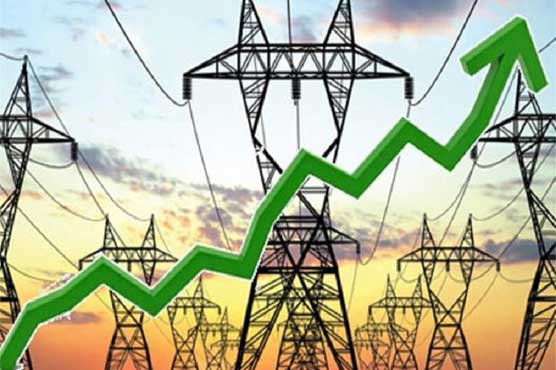Govt bows down to IMF demand, decides to withdraw Rs146bn subsidy on power

The petition for tariff determination will be heard by the regulatory body on November 26
ISLAMABAD (Dunya News) – The government on Tuesday while bowing to the pressure of International Monetary Fund (IMF) has decided to withdraw Rs146 billion subsidy on power being given to the domestic consumers.
Sources told Dunya News that the government directed the distribution companies to chalk out a uniform power tariff for domestic consumers of different categories. A petition seeking the determination of power tariff has also been sent to the National Electric Power Regulatory Authority (NEPRA).
The tariff for the consumers consuming up to 50 units per month has been sought to be determined at Rs2 per unit while the Rs5.7 tariff has been sought for consumers consuming up to 100 units every month.
The power tariff for consumers using 100 to 200 units every month has been recommended at Rs8.11 while tariff for the consumers using electricity from 200 to 300 units per month has been sought at Rs10.70 per unit.
The tariff for consumers using 300 to 700 units per month would go up to Rs17.07 per unit and consumers using more than 700 units per month would have to pay Rs20.70 for per unit power.
The petition for tariff determination will be heard by the regulatory body on November 26.
Finance Minister holds meeting with IMF mission
Earlier, Finance Minister Asad Umar held a meeting with the visiting IMF mission led by Harald Finger.
The mission leader shared his initial assessment with the finance minister on various sectors of the economy, following the delegation s interaction with officials of relevant ministries and entities.
The finance minister shared with the delegation, PTI government’s vision on economy. He referred to the corrective measures being taken to remove imbalances in the economy and said that the new government had come to power with an agenda of wide ranging reforms.
He said that the government has a strong resolve for implementing deep structural and institutional reforms. It is committed to safeguarding the poor and vulnerable segments of the society and shall invest more in social protection, human development and creating employment opportunities, the minister added.
Along-with structural and governance reforms, revival of domestic industry and export sector are high priorities of the Government. He said Pakistan looked forward to receiving IMF support for government’s efforts aimed at achieving an economic turnaround.
The mission will continue its discussions with the relevant authorities during the next several days.
The cash-strapped Pakistani government led by Prime Minister Imran Khan is facing grave economic challenges as it struggles to keep the economy afloat.
Last month, Saudi Arabia said it would provide Pakistan with a USD 6 billion rescue package, but officials have said it is not enough, and Islamabad still plans to seek a bailout from the International Monetary Fund (IMF).
Pakistan formally approached the IMF in October for loans.
An IMF team is currently reviewing Pakistan s monetary and fiscal policies as well as its monetary needs in keeping with the current account deficit.
On Monday, the delegation, which has already concluded the technical discussions with the Pakistani representatives, commenced its policy-level talks with ministers and representatives of the Federal Board of Revenue (FBR).
The IMF delegation was briefed on the tax collection target for the ongoing fiscal year as well as the financial performance during the first four months, starting July 1, 2018 (FY18-19).

